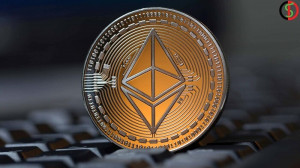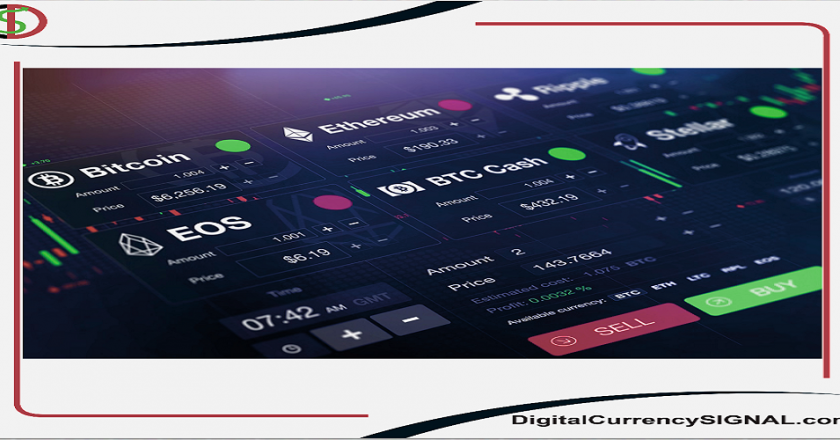Introduction
If you are interested in purchasing cryptocurrency, Ethereum could be a fantastic option for you. Ethereum is a decentralized virtual money that facilitates the execution of safe transactions and agreements online. Let’s get down to business and learn more about Ethereum. As the usage and popularity of Ethereum blockchain technology increase, many middleman jobs will soon disappear. Work is the role of the third party in the activity and acts as an intermediary between people. The loss of these jobs is expected to result in a significant reduction in fraud and systematic corruption. Ethereum is the world’s second-largest and most valuable cryptocurrency in terms of market volume. But this definition is completely wrong. While many people think Ethereum is an electronic currency like Bitcoin, Ethereum is an open blockchain-based platform where various developers can implement their decentralized applications.
Vitalik Buterin proposed the idea of creating Ethereum in 2013, and the Ethereum network was officially launched in 2015. This platform has a special currency called Ether (ETH), but most people use the term Ethereum as the name of this currency.
What precisely is Ethereum?
Ethereum is a distributed ledger technology (blockchain) computer platform that runs on its own network and supports a decentralized application store and transaction mechanism. Clients of Ethereum are able to create decentralized apps free from restriction and censorship, and they may utilize smart contracts to perform trustworthy and risk-free financial transactions with one another.
To understand the purpose of Ethereum, it is better to give an example from everyday life. We all use multiple platforms every day. A centralized platform is a platform controlled by one person or entity. For example, a bank is a centralized platform and has access to complete customer information, from their place of residence and date of birth to their assets and money. It is also possible that sometimes this information is stolen from banks or that a reputable embezzler takes people’s money and flees to Canada.
Arguably 99.9% of the organizations or departments we work with, social networks, and even Google have centralized platforms. Now you will understand that we are all surrounded by centralized institutions, each of which holds some of our information in their hands and controls it, and sometimes even abuses it. In a decentralized world, you don’t have to worry about government fraud and rigging in elections because no institution or organization can interfere in the elections. You might think that these things only exist in science-fiction movies, but I have to say that despite Ethereum blockchain technology and smart contract technology, we are not far away from a decentralized world.
Is Ethereum decentralized?
A decentralized system, to put it more simply, is a framework that is not hosted on a single computer but rather on a number of different machines. In the realm of information technology, a “platform” may refer to either a specific application or an operating system that is used in conjunction with other programs. In addition, a decentralized platform supports a variety of software programs that may be developed for it and executed in a safe manner.

Ethereum is a blockchain that operates with its own native digital money known as ether (ETH). The decentralized software of Ethereum is able to function because a large number of users contribute to the upkeep of the blockchain and the mining of currencies. This procedure is not under the control of any one individual.
What are the characteristics of Ethereum digital currency?
Ethereum has various features that have increased the number of its users in recent years. Next, we want to discuss some of the most important features of Ethereum.
- Ethereum digital currency is an open-source and decentralized blockchain.
- Ethereum currency is a blockchain whose base currency is called Ether.
- Ethereum has an Ethereum virtual machine.
- Ethereum uses a proof-of-work algorithm.
- This platform is equipped with the functionality of smart contracts.
How does the Ethereum crypto work?
Blockchain technology was used in the creation of Ethereum, like other digital currencies. To better understand the blockchain, it is better to imagine a long chain of interconnected blocks. The information associated with each of these blocks is available to all members of this blockchain network, and no member can modify or delete it. New blocks are added to the very long Ethereum blockchain to process transactions on the network and generate new Ether coins or execute smart contracts for Ethereum dApps.
The security of this network is ensured by the decentralized nature of blockchain technology, and the maintenance of the Ethereum blockchain network is carried out by a large network of computers around the world, and any changes to it require a majority vote and consent; As a result, it can be said that this network can only be successfully handled if one person or a large group of network participants can achieve the computing power of the platform, which is almost impossible and far from mind. The Ethereum platform has the potential to support many applications beyond Ether and other cryptocurrencies. Users can create, publish and earn a wide range of programs on this platform. You can also use Ether or other digital currencies as a payment method.
What is the Ethereum Blockchain?
Ethereum is a special blockchain network created to eliminate criminals. Smart contracts work on the Ethereum blockchain network each smart contract is a set of programmed codes located at a specific address on the Ethereum blockchain network. With the help of smart contracts, the need for an intermediary is eliminated and both parties can fully trust a smart contract that is valid and immutable. Now that you have read an overview of the Ethereum blockchain network and smart contracts, you will have a better understanding of the nature of the Ethereum network.
Simply put, the Ethereum network can be thought of as the computer and platform on which all decentralized applications (Dapps) and smart contracts are executed. In this system, if someone is an application developer, he does not need an independent network and platform, and with the help of smart contracts, he can easily implement decentralized applications on the Ethereum network. It takes 14 seconds to generate each new block on the Ethereum network, which is 10 minutes faster than the time it takes to mine each block on the Bitcoin network.
The primary distinction between Bitcoin and Ethereum?
Ethereum is a blockchain platform, utilized by programmers and organizations to construct new apps and services using smart contracts. Bitcoin, on the other hand, is believed to be a virtual currency. This difference is what differentiates Ethereum from Bitcoin. The blockchain technology is the platform upon which smart contracts, which are collections of code used to carry out a set of instructions, are executed.
Ethereum is focused on decentralized finance, has a high level of programmability, and is orders of magnitude quicker and more powerful than Bitcoin. In addition, Ethereum serves as a platform for a great many other cryptocurrencies to operate on. The technology known as blockchain is the foundation of both Bitcoin and Ethereum.
Who is in charge of Ethereum?
There is no one organization that has authority over Ethereum. Only through the decentralized involvement and cooperative effort of the community is it able to continue existing. As a means of supplanting the individual server and cloud infrastructures controlled by major internet providers and services, Ethereum relies on “nodes,” which are computers that store a copy of the Ethereum blockchain and are operated by unpaid volunteers.

The Ethereum network architecture benefits from the robustness provided by these decentralized nodes, which are managed by people and organizations located all over the globe. As a result, it is far less susceptible to being hacked or shut down. Ethereum has not seen a single instance of downtime since since it was first released in 2015. The Ethereum network is powered by the individual nodes of thousands of computers. As a result, Ethereum is now among the most decentralized cryptocurrencies.
Ethereum and smart contracts
Smart contracts are another method that Ethereum takes use of blockchain technology. These contracts validate and protect all of the transactions that take place in Ether, the platform’s native coin. Because smart contracts automatically carry out the transactions and any other activities that have been agreed upon by both parties, users are able to engage in trustworthy and secure financial dealings with one another.
For instance, consumers of an insurance business may use smart contracts to electronically submit their claims, and if those claims were found to satisfy the necessary criteria, the smart contract would immediately initiate an automated payment to the customer. However, in order for a user to make modifications to their applications and execute smart contracts, the user is required to pay a price in Ether that is proportional to the amount of computational power that is required to power these operations.
Should you invest in Ethereum?
Whether or not you should put your money into Ethereum depends on a number of different aspects of the situation. Consider, for starters, how big of a gamble you are willing to make. Due to the fact that cryptocurrency is still mostly speculative, investing in it is necessarily fraught with danger. There are no assurances that Ethereum will be successful in the long term, despite the fact that it is now one of the largest and most well-known networks in the cryptocurrency sector.
Consider how much of the market’s volatility you can stomach as well. Even if Ethereum is successful for the course of its whole lifespan, the path ahead is going to be fraught with challenges. If you know that the tremendous volatility of cryptocurrencies might cause you to lose sleep, then investing in them probably isn’t the best idea for you. However, if you are prepared to weather the storm and keep your cryptocurrency holdings for the foreseeable future, Ethereum may prove to be a profitable investment.
Ethereum 2.0 is on the horizon
Ethereum 2.0 will be released very soon, and it will bring with it the promise of an update to Ethereum’s Mainnet that will boost its scalability. This summer, most likely in August, there may finally be an upgrade to the Ethereum blockchain, which has been in development for a very long time. The transition from a proof-of-work consensus process to a proof-of-stake consensus mechanism is the most important shift that will take place when Ethereum 2.0 is released.
Once the merging is over, the technique of verifying Ethereum transactions will change from mine to staking, which requires setting aside a fixed amount of money in order to take part in the transaction verification process. Mining will be phased out. It is anticipated that Ethereum 2.0 would minimize the cryptocurrency’s environmental impact by up to 99.95%.
A wallet that supports the Ethereum digital currency
Crypto wallets fall into two main categories: hot and cold or software and hardware wallets. To better understand this, think of digital wallets as banking apps that allow you to view your balance, and store and manage digital assets, including Ethereum. Despite the great popularity of Ethereum, many wallets support cryptocurrencies of this blockchain, including ETH. Some of the hardware wallets that support Ethereum are:
- Ledger Nano S
- Ledger Nano X
- Trezor Model T
- Trezor One
- Keepkey
Here are some of the software wallets that support Ethereum:
- Mist
- MetaMask
- Exodus
- Bread Wallet
- Atomic Wallet
- Trust Wallet
- Guarda
- Argent
- Jaxx
- MyEtherWallet
Ethereum and real-life banking systems
Ethereum is gaining widespread use in financial systems because its decentralized approach makes it difficult for hackers to get illegal access. This is one of the reasons why Ethereum is becoming more popular. Since it also enables payments on a network based on Ethereum, financial institutions are able to use Ethereum as a conduit through which they may send remittances and make payments.
Ethereum is the second generation of digital currencies and is a platform that not only supports activities related to digital money but also enables the execution of various contracts in a digital and decentralized manner. Ethereum digital currency works on the blockchain network platform and its main currency is Ether. Thank you for reading this article in digital currency signal. We hope you have learned everything you need about Ethereum.
FAQ
Who launched the Ethereum blockchain?
The Ethereum Whitepaper was published in late 2013 with the goal of building decentralized applications by the programmer and co-founder of Bitcoin Magazine, Vitalik Buterin.
Which wallet supports Ethereum?
After purchasing Ethereum, you can store and manage your crypto assets in a variety of hardware and software digital wallets. Some of the most popular Ethereum wallets are: Trezor, Ledger, Metamask, Trust wallet, Keepkey, Mist Atomic Wallet and Exodus.
What factors affect the price of Ethereum?
The most important factor influencing the price of Ethereum is supply and demand in the market. The more people want to buy Ethereum, the higher the price.





